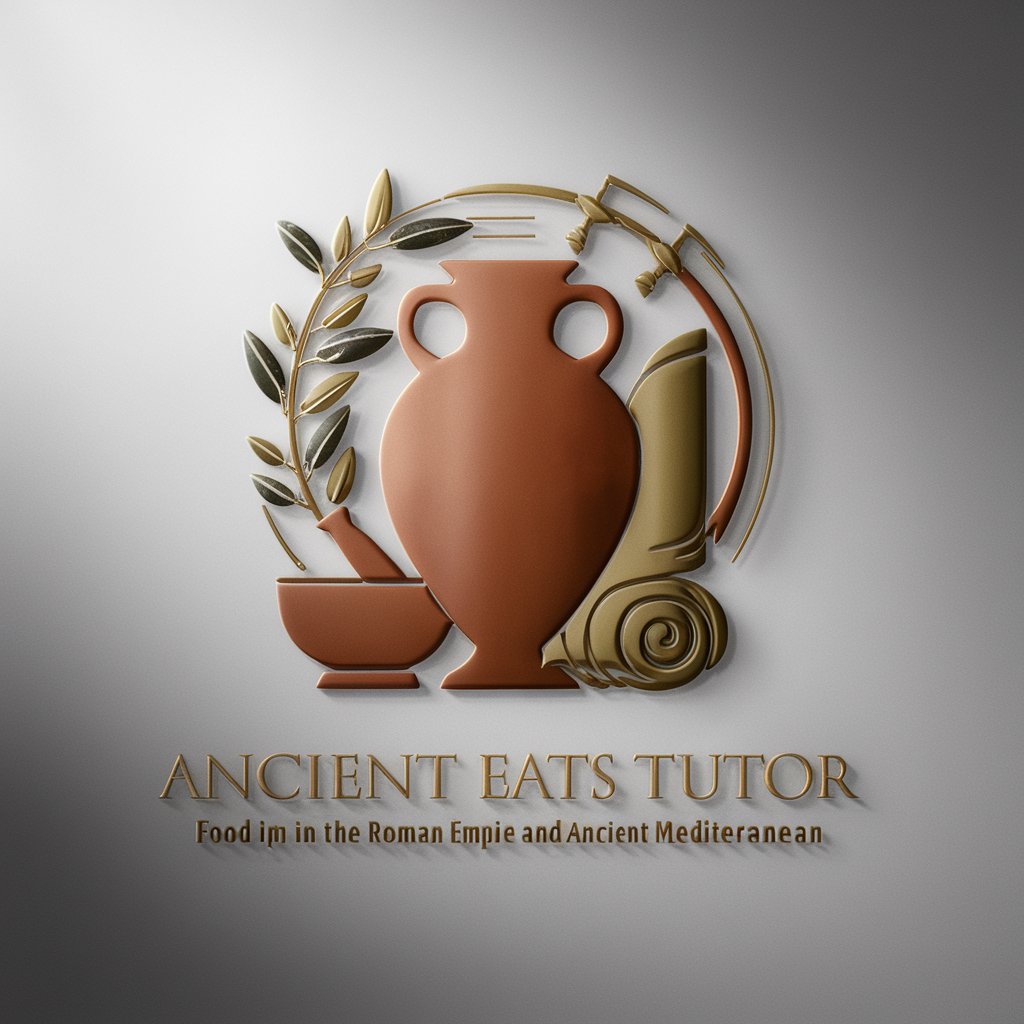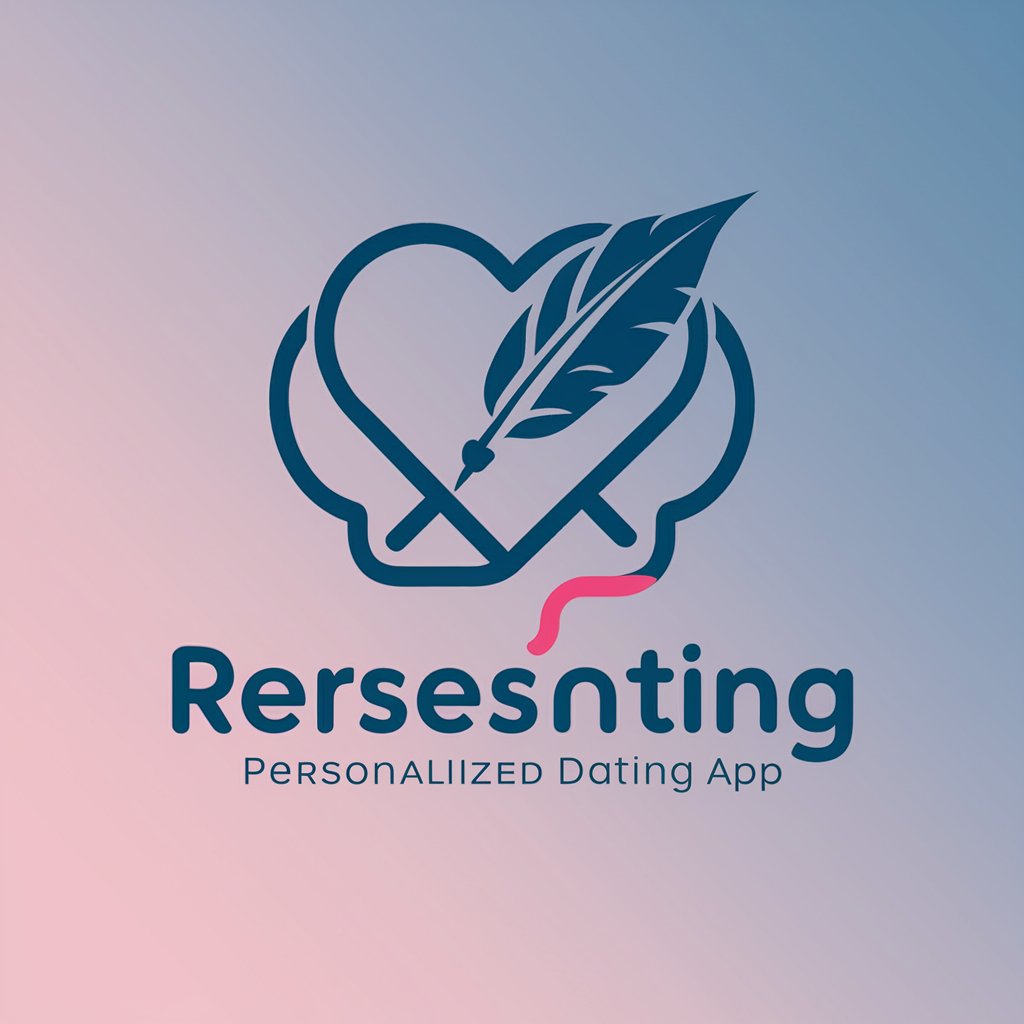Ancient Eats Tutor - Ancient Culinary Insights

Welcome! Let's explore the culinary world of ancient Rome and the Mediterranean.
Explore ancient diets powered by AI
Explain the significance of olive oil in ancient Roman cuisine.
Describe the role of food in Roman religious festivals.
What were common ingredients in a Roman garum recipe?
How did ancient Mediterranean trade routes influence Roman food culture?
Get Embed Code
Overview of Ancient Eats Tutor
Ancient Eats Tutor is a specialized AI designed to delve deep into the culinary world of the Roman Empire and the broader ancient Mediterranean region. My core purpose is to provide comprehensive, detailed insights into various aspects of ancient diets, including farming practices, sustainability, trade, purchasing, processing, production of food, ingredients used, recipes, culinary tools, feasts, and the cultural, mythological, and philosophical significance of food in ancient societies. The design integrates historical accuracy with engaging storytelling, offering a rich, contextual understanding of ancient culinary practices. Powered by ChatGPT-4o。

Functions of Ancient Eats Tutor
Historical Recipe Analysis
Example
Analyzing recipes from Apicius' 'De Re Coquinaria', contextualizing ingredients, methods, and historical significance.
Scenario
A student exploring ancient Roman cuisine can learn how these recipes reflect Roman society, economy, and cultural practices.
Agricultural Practices and Sustainability
Example
Explaining the role of olive oil production in ancient Greece, including farming techniques and trade.
Scenario
An academic researcher studying sustainable practices in history can gain insights into ancient agricultural methods and their modern relevance.
Culinary Tools and Techniques
Example
Detailing the use of the Roman 'thermopolium' and its role in food preparation and serving.
Scenario
A culinary historian can understand the evolution of fast-food practices and compare them with contemporary methods.
Target User Groups for Ancient Eats Tutor
Upper Division and Graduate Students
Students specializing in history, archaeology, or culinary history will find detailed, scholarly content enhancing their academic research and understanding of ancient food cultures.
Academic Researchers and Historians
Researchers focusing on ancient civilizations, sustainability, or the socio-economic aspects of ancient societies can utilize the comprehensive data and analyses for in-depth studies and publications.
Culinary Professionals and Enthusiasts
Chefs, food writers, and culinary enthusiasts interested in the historical and cultural aspects of cuisine can explore ancient cooking techniques, ingredients, and recipes, enriching their culinary repertoire and knowledge.

How to Use Ancient Eats Tutor
Start with a Free Trial
Access Ancient Eats Tutor without login or a ChatGPT Plus subscription by visiting yeschat.ai for a hassle-free trial.
Identify Your Topic
Choose a specific area within ancient Mediterranean food history you wish to explore, such as Roman culinary practices, ancient farming techniques, or the role of food in mythology.
Pose Your Questions
Ask detailed questions to gain in-depth insights. For example, inquire about ancient recipes, agricultural practices, trade routes, or dietary habits.
Engage with the Responses
Interact with the tutor's responses by asking follow-up questions or requesting clarifications to deepen your understanding.
Utilize for Various Projects
Apply the knowledge gained in academic research, writing projects, or to enrich your understanding of ancient cultures and their culinary legacies.
Try other advanced and practical GPTs
SEO Article Ideas
AI-powered SEO Content Generator

BikePro
Empowering Your Cycling Journey with AI

Dad[AI]Base
Bringing smiles with AI-powered dad jokes.
![Dad[AI]Base](https://r2.erweima.ai/i/MVt0EMC7R36t8gG9GGCqzA.png)
Fashion Insight Hub
Empowering Fashion Decisions with AI

Scientific Research & Writing Guide
Enhancing Scientific Writing with AI

Amelia Irwing
Experience Human-Like Conversations

Claire
Empowering Creativity with AI Intelligence

GitHub Issue Helper
Streamlining GitHub issue creation with AI

Cleaning Copilot
Your AI-Powered Cleaning Ally

Grumpy the Grumbot
Embrace the grumpy: AI-powered critical insights.

New Horizons - Military Transition Made Easy
Empowering Military Transitions with AI

Spark
Elevate Your Dating Conversations with AI

Frequently Asked Questions about Ancient Eats Tutor
Can Ancient Eats Tutor provide original ancient recipes?
Yes, it can offer translations and interpretations of ancient recipes, contextualizing them within the historical and cultural framework of the time.
How accurate is the information provided by Ancient Eats Tutor?
The tutor draws from historical texts, archaeological findings, and scholarly research to provide accurate and up-to-date information on ancient Mediterranean diets and culinary practices.
Can it help with academic research on ancient food systems?
Absolutely, it's designed to assist in academic research by providing detailed insights into ancient food production, trade, and consumption patterns.
Is it possible to learn about the social and cultural role of food in ancient times?
Yes, the tutor can elaborate on how food functioned within social rituals, religious practices, and daily life, highlighting its significance beyond mere sustenance.
How does Ancient Eats Tutor incorporate sustainability in its discussions on ancient practices?
It discusses ancient farming techniques, crop rotations, and the use of local resources, drawing parallels to modern sustainability concepts and challenges.
